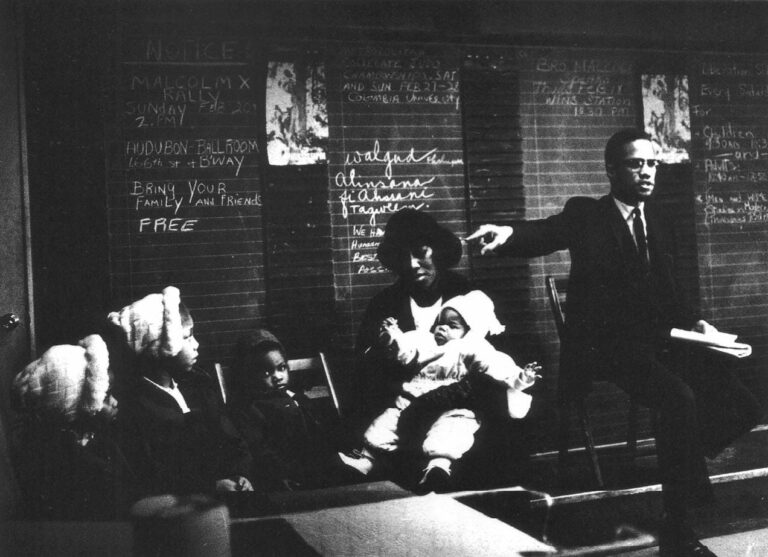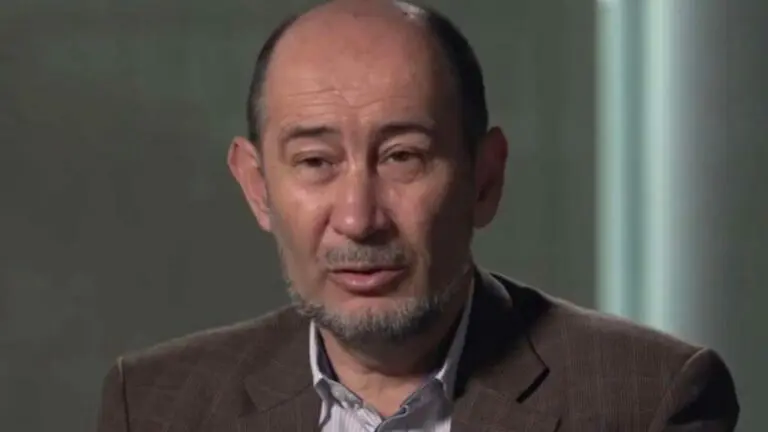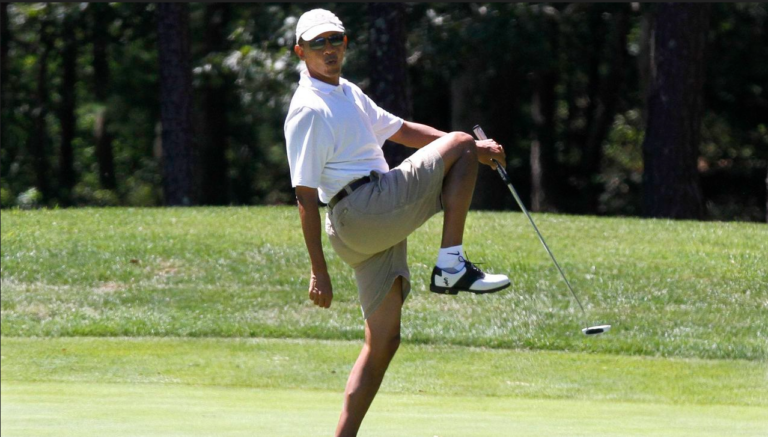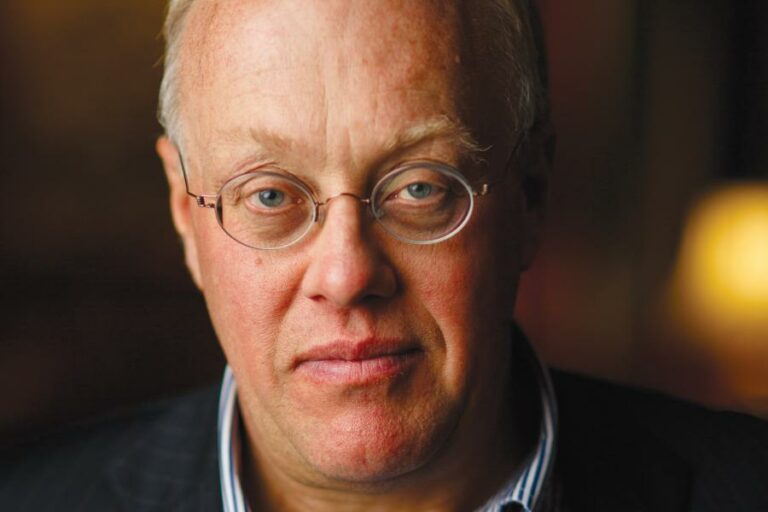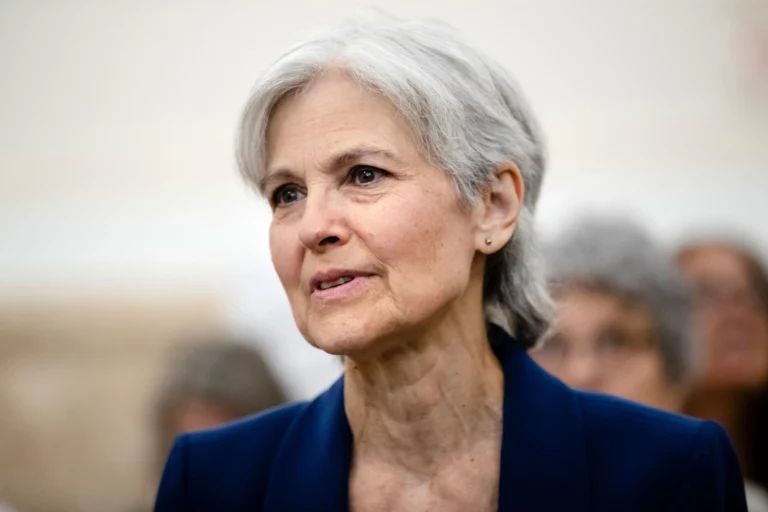This interview was originally released on April 11, 2014. Mr. Lander, with host Paul Jay, traces the events that set the stage for the Bolivarian Revolution and the Chavez era of Venezuela.
PAUL JAY, SENIOR EDITOR, TRNN: Welcome back to The Real News Network. I’m Paul Jay. And welcome back to Reality Asserts Itself.
We’re continuing our discussion on the modern history of Venezuela with Edgardo Lander, who now joins us in the studio. Edgardo is a sociologist, a professor at the Central University of Venezuela in Caracas. He holds a degree in sociology from the Universidad Central de Venezuela and an MA and PhD in sociology from Harvard. And he’s very active with the trade union movement in Venezuela and the left in general. He’s widely known as both a supporter and critic of the Chávez presidency.
So tell us the story of the coup and the very dramatic moment Chávez goes on television in the midst of all this.
PROF. EDGARDO LANDER, UNIVERSIDAD CENTRAL DE VENEZUELA IN CARACAS: The coup was organized in different military establishments across the country. Some succeeded. But the main part of the coup, in Caracas, failed, and Chávez was responsible for Caracas.
So, since some of the military installations out of Caracas were in the hands of the participants of the coup, there was a negotiation between Chávez, who realized that the coup had failed, and the government to call off the coup. So he was put on prime-time television, a national network for, I mean, the whole country, to announce, in a brief statement, that the coup had failed for now.
JAY: Now, I’m sure that wasn’t what was negotiated. His for now wasn’t part of the deal.
LANDER: No, not part of the deal. So this notion of for now was sort of–it became part of the Venezuelan imaginary–in this political culture as for now that will come again.
JAY: And this was partly to stop an outbreak of violence for a coup he knew was not going to succeed.
LANDER: Yeah. I mean, there was no way, if he didn’t control Caracas and a few other main areas, that the coup would succeed. And so he was put in prison. And there was a second coup attempt by some of his followers later that year, which also failed.
He became sort of a legend as he was in prison for a couple of years. And then the president, Caldera, decided to free him.
JAY: Why?
LANDER: He had already–I mean, he was–he thought he needed to pacify the country and sort of deal with the contradictions and the conflict in the country. He thought that he was more dangerous in prison than he would be out and acting politically. He had already given amnesty to the guerrillas in his first presidency. And this was part of his sort of Christian thinking of how to solve things.
JAY: This is Caldera.
LANDER: Yeah, Caldera, yeah.
And as [incompr.] he came out, Chávez, he started to go around the country having small meetings all over the place, very low-key, sort of one place to another, and sort of talking about his proposals for the country, etc.
JAY: He must have been planning this when he was in prison.
LANDER: Oh, of course. And a lot of people visited him, so he became more well known, and for a few other people sort of talked to them a lot. And so sort of a planned process, in which this was sort of organized. And he also organized a few international tours. I mean, he went around Latin America. He went to Cuba. He met Fidel. I mean, there were a lot of–he established contacts with different–.
And in the 1998, when he finally announced his candidacy at the beginning of the year, his opinion poll ratings were, like, five. And there was a ex-Miss Universe that was the leading candidate for part of the year. Only by mid-year this started to change.
And his vision, I mean, his offer was basically the idea that this representative democracy had failed and that we needed a new mode of democracy and we needed a new constitution. So the constitution was, like, his main flag for the–there wasn’t much of–it was an anti-neoliberal agenda, certainly not an anti-capitalist agenda.
JAY: He has to reinforce that. So he was against this kind of cut to all subsidies and privatization and such and such, but it was not an anti-capitalist agenda.
LANDER: No, not at all.
JAY: It was–.
LANDER: Not at all. Not at all. Not at all.
And he basically talked about the tree that had free roots, which was sort of the source of this tree of the new Venezuelan society. One was Bolívar and the struggles for independence. One was Zamora, which was a leader of the peasant civil struggle in the Venezuelan civil war in 19th century for peasants’ rights. And the other was the great teacher of Bolívar, who was a great thinker and sort of very sort of forward-looking. And this combination, with some notion of Latin America as a whole, was sort of his vision of the world by then.
As soon as he became president, he announced a referendum to decide whether a new constitution should be established. Just a few months after that, the Constitution was–the referendum decided that a new constitution [incompr.] a national constitutional assembly was called, in which the Chavistas got a significant majority, but the rest of the political system all participated and all had representatives in the [incompr.]
And this constitution is a sort of a very progressive social democratic–sort of social democratic constitution which highlighted rights. It was a sort of welfare state, sort of advanced, sort of radically advanced welfare state.
And there was a sort of vision, according to which the Venezuelan economy should have three sectors: the state sector, the private sector, and the sort of communal or social–whatever.
JAY: Co-ops and such. Yeah.
LANDER: Co-ops and all that. That’s sort of the vision.
And there was much more control of the state over the oil industry than had been the case before, even if the oil industry by then was 100 percent state controlled, because the PDVSA, the Venezuelan oil company, was nationalized and it became a national oil company, but most of the people who worked at the high levels of the company were the people who had worked with Standard Oil or Shell or Mobil or–. So they were sort of the same people. And the corporation, as such, worked as an autonomous corporation in relation to the state. They were sort of defending the corporation against the state. They were doing things like investing abroad in order to guarantee that the state couldn’t tax them. So they weren’t really working as a national corporation, even though they were, I repeat, 100 percent state-owned.
JAY: In my understanding, the different sections of the elite were making killings off of selling stuff to the publicly owned company, overcharging for, like, even toilet paper or whatever it was.
LANDER: Yeah, yeah, yeah, that’s the case. And so the control of the oil company was a huge issue.
For the first, say, two years of the Chávez government, the country didn’t really know what was going on. I mean, there wasn’t really massive popular support, because nothing much had changed. The opposition really hadn’t made sense of what Chávez was like or what his project was, so it was [incompr.] two years when–.
JAY: Ninety-eight to 2000.
LANDER: Yeah, more or less. But after that, the opposition began to organize more and confront the government more and more. And that led to a sort of situation of confrontation in which the government became more radicalized, as it was much more confrontational. And this led to the coup attempt in 2002.
JAY: So from 2000 to 2002, he passes some very serious reforms, doesn’t he, in many sectors.
LANDER: Yeah.
JAY: It wasn’t just an attempt to get back the oil company and use those oil revenues in the public interest. If my memory serves me right, he started reforms on land reform. He started doing stuff on–
LANDER: Fishing.
JAY: –on fishing and who gets–small fishermen’s rights versus the big–
LANDER: Trawlers.
JAY: –fisheries. And it seems like he took on so many sectors of the elite all at the same time, and every sector of the elite had a section of the workforce that wasn’t clear where their interests were.
LANDER: Yeah.
JAY: Is that part of what created the conditions for the coup, that he–
LANDER: Yeah, of course.
JAY: –he just took on too much? If he had just focused on the oil company, would it have been different?
LANDER: Well, it could have been different. Well, those other things were things that had to be done anyway. I mean, some were very reasonable, I mean, just to–in the case of fishing, for instance, just regulations for both environmental and the rights of small-scale fishers. I mean, there was–some of the things were quite obvious and weren’t particularly radical. I mean, there were–laws like that existed all over the place [incompr.] there wasn’t a particularly revolutionary type of–.
But I think the most important thing was oil, because it’s–if you control the oil company, you control the country. And so the attempt to control the oil company was sort of–was the thing that really led to the organization of the opposition as such and with the huge role that the meritocracy, I mean, the higher levels of management in the oil company, played in the coup.
And it was a political coup, and the purpose of the coup was to get rid of Chávez. I mean, it wasn’t–there was no pretense that it would be something else. And one of the things that was sort of repeated once and again during the days of the coup was during–and later, during the time of the oil strike, was not one more drop of oil to Cuba. That became sort of symbolic of what they were going against.
JAY: Because Cuba represented socialism, and by–. And prior to the coup, had Chávez articulated his vision as a socialist vision?
LANDER: No. No.
JAY: This comes after that.
LANDER: Yup. If you look at the 1999 constitution, it’s a sort of progressive welfare state, but a capitalist state. Nothing more. And even in terms of the transformation of representative to participatory democracy, it’s not a displacement of representative democracy by participatory democracy, but of democratization of the political system increasing other–introducing other levels of participation. So the whole basic framework of representative democracy was kept–the election of parliament, separation of powers, and the assemblies at the state level–and the whole structure of liberal representative democracy was kept, but a lot of sort of additional modes of participation–.
JAY: And the point here wasn’t so radical. It was essentially–it was mostly reforms you could see in much of Europe and Northern Europe. But the idea that he would pry the oil company out of the hands that were making a killing on it, that was enough.
LANDER: That was huge. And for the United States, obviously, that was huge.
JAY: Well, the American hands were all over this, were they not?
LANDER: Yup. Yup. Yup.
JAY: Well, why did the Americans care so much?
LANDER: When Chávez became elected president, oil prices in Venezuela were about $10 per barrel. And part of that–not only because of that, but part of that had to do with the fact that OPEC had been weakened as a consequence of two things: confrontations in the Arab countries (Saudi Arabia, Iran, or–I mean, they couldn’t agree on anything), and the fact that PDVSA, which was a big player,–.
JAY: PDVSA being the Venezuelan oil company.
LANDER: The Venezuelan oil company, which was a big player, wanted to get rid of limits on how much they could produce. So they were either trying to weaken OPEC or violate their agreements with OPEC to such an extent that OPEC would just be irrelevant.
JAY: So PDVSA is doing this in alliance or connivance with the United States.
LANDER: Yeah, yeah. So they started to produce a lot more oil than the quota. And so there was no way they could agree on control of quotas, which was the purpose of OPEC, and prices had just collapsed. So one of the first things that the Chávez government did was to call a meeting of OPEC heads of state and sort of try to recover. And as a consequence of a Venezuelan initiative, they managed to get–in spite of the disagreements on everything else, they managed to curtail the level of production, and prices just went up. In that year, prices just rose significantly, I don’t know, from $10 to $40 in just a few months.
JAY: So this is a real strategic challenge to the United States.
LANDER: Absolutely.
JAY: In a place that had been in the hip pocket of the United States for the whole century.
LANDER: Yeah, even though for the oil companies a price of $10 is–I mean, it doesn’t make any sense, because there’s a lot of–especially in the States, there’s an enormous amount of oil that is not usable if the price of oil is at that level, but still, I mean, the fact that this was part of a nationalist shift that again threatened U.S. control.
And it’s also the case that Venezuela started to play a very important role in Latin America as a whole. Venezuela played a huge role in the defeat of FDAA, which was a main issue. FDAA was, like, a sort of–this free trade treatment of the Americas, which was like a new constitution for all of the Americas, in which the rights of capital were put over the rights of citizens all over, I mean, no matter where you looked. It was a huge issue, in terms of democracy and sort of autonomy of Latin American states.
JAY: And in terms of the coup, so Chávez is–we won’t tell the whole story of the coup here, ’cause it’s very dramatic and it’s complicated and it’s been told many times. There’s good documentaries about it. But let me just–.
LANDER: The 2002 coup?
JAY: Yeah.
LANDER: Okay.
JAY: But let me just quickly say–correct me if I’m wrong–Chávez, in order to avoid a lot of bloodshed in the palace, agrees to essentially kind of give himself up to the coup forces. And, what, two, three days later, after millions of the people come out in the streets in support of Chávez and much of the armed forces supports Chávez, they have to return him to the palace. And he comes back a far more radical Chávez, does he not?
LANDER: Not necessarily. That was a moment in which he had enough backing, popular backing, and the opposition was so obviously involved in the coup–I mean, the whole of the opposition–
JAY: And the media, particularly.
LANDER: –and the media played a huge role. Then he could have taken some decisions, which he didn’t take because he thought that it was better to try to have a situation in which stability could be achieved.
JAY: Yeah, ’cause he doesn’t really arrest the coup leaders. He doesn’t go after them.
LANDER: I mean, in any country in the world where you had the main television networks actively calling on the military to have a coup, I mean, they would have been suspended. And in Venezuela nothing happened. They just continued with their license and as if nothing had happened.
JAY: And why do you think he did that?
LANDER: Because he thought it would bring stability. He thought that if he pressed more, it would probably lead to less stability.
JAY: So post-coup begins a whole period of trying to grapple with the social and political problems of Venezuela.
LANDER: Yeah. But after the coup, there was the oil strike, at the end of that same year. It was almost three months in which oil production was completely stopped. Imagine a country whose whole economy is dependent on oil income. And Venezuela, for the first time in decades, had to important gas. People couldn’t get around the city, because there was no public transportation. People had to walk [incompr.] jobs. People couldn’t cook, because they didn’t have gas, and most Venezuelans cook with gas. And this really was sort of the more radical confrontation that split the country.
And this is what really sort of created a solid alliance between popular sector of the Venezuelan population and the government, because people were willing to walk three, four hours to get to their jobs if necessary. It was sort of a massive resistance. People were–just refused to be defeated. And this sort of led to a, really, deepening of the notion of this as our government, our revolution. It had a huge impact.
And after that, there was–the recall referendum was a possibility not far in the–.
JAY: This is something that Chávez had written into the Constitution, that after–what is it? After three years or something, you could recall the president as an attempt to do that.
LANDER: And anybody else, I mean, all elected officials after half the period.
After the coup and after this oil strike, the economic situation in Venezuela was a mess. I mean, the economy collapsed by–I don’t know; it’s something like 17 percent from one year to another as a consequence of the oil strike. And there was a possibility of the recall referendum for the following year, 2004.
And that’s when the so-called misiones started to work. The government realized that it didn’t have the capacity to carry out its proposals for social policies within the traditional bureaucracy. So it started to create parallel structures to carry out policies in different sectors of the society.
JAY: Okay. We’re going to stop here.
So, in the next segment of our interview, we’re going to look at the successes and the failures of the Bolivarian Revolution critically, but understanding, as I said in the beginning of part one, it’s one thing to critique a revolution and a process which is, on the whole, I think the evidence shows, fighting against inequality and for reform, another thing to critique that same government in order to bring it down and bring back the old order. Well, we’re going to be doing the first, not the second.
So please join us for the continuation of our series of interviews with Edgardo Lander on The Real News and Reality Asserts Itself.
Never miss another story
Subscribe to theAnalysis.news – Newsletter
“Edgardo Lander (born 1942) is a Venezuelan sociologist and left-wing intellectual. A professor emeritus of the Central University of Venezuela and a fellow of the Transnational Institute, he is the author of numerous books and research articles on democracy theory, the limits of industrialization and economic growth, and left-wing movements in Latin America.”










